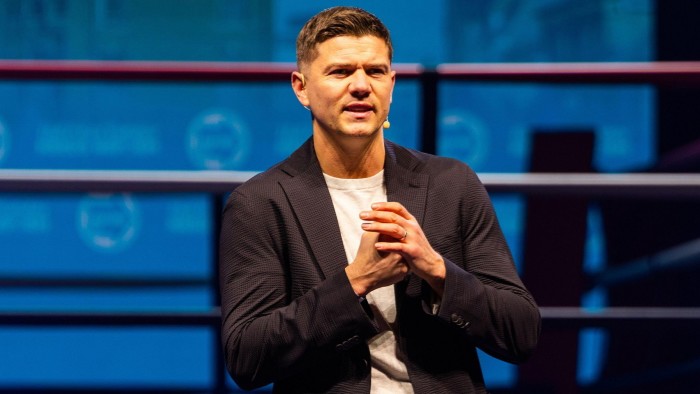Unlock the Editor’s Digest for free
Roula Khalaf, Editor of the FT, selects her favourite stories in this weekly newsletter.
A Reform UK mayor has signed up to a new body that backs green energy investment, despite his party nationally vowing to wage war on net zero and local renewables projects.
Hull and East Yorkshire’s Luke Campbell, who won the area’s newly formed mayoralty in early May, was among eight northern mayors to launch a cross-party partnership on Monday called The Great North.
Green energy is the first of four priorities listed by the body, alongside strengthening trade links with the north, furthering devolution and supporting the region’s creative industries.
The body has put forward a specific prospectus devoted to “developing our clean energy investment offer”, highlighting projects planned or already built along the eastern coastline, which includes Campbell’s area.
The document offers in effect a high-level investment prospectus, and notes three proposed wind farms, two current or planned hydrogen projects and a carbon capture scheme in Hull and East Yorkshire.
It also argues for further “large-scale solar” schemes in northern England.
Speaking ahead of the organisation’s launch in Leeds, Campbell said the partnership represented “a fantastic opportunity” for his area to join up “across the north on transport and other major infrastructure projects”.
Campbell was one of two Reform mayors to claim victory in England for the first time in local elections on May 1. The party took control of 10 local authorities, riding a wave of right-wing populist support.
Opposition to the net zero agenda and antipathy towards renewable projects such as solar farms has been a central pillar of Reform’s pitch to voters.
Richard Tice, the party’s national deputy leader, vowed that Reform-led councils would use “every lever” available to block renewable projects, although Campbell struck a more pragmatic tone during his own campaign.
He told the BBC at a hustings event ahead of the local elections that he would support the net zero target if it created jobs but did not think it was achievable.
The Great North is intended to create a stronger lobbying partnership between the north’s directly elected mayors, who now cover most of the region’s map. The majority are Labour, with Campbell and the Tees Valley’s Conservative mayor Ben Houchen also signed up.
The CBI and Federation of Small Businesses have given their support, while deputy prime minister Angela Rayner spoke at the launch at the UKREiiF property conference in Leeds on Monday night.
“This is so much more than just a new name or a new council for the north,” she said. “It’s a whole new era.”
Rayner linked the organisation back to the government’s devolution agenda, on which a white paper was published at the end of last year.
The Great North was part of a push to ensure “decisions are made not in a far away room in London”, she said, “but by people who know the towns and cities and countryside best”.
As well as clean energy opportunities, the body promises to build the region’s trade profile, focus on supporting creative industries and push for further devolution.
The body has echoes of the “Northern Powerhouse” brand developed under Conservative chancellor George Osborne between 2010 and 2016, an agenda that focused on linking up the region’s underperforming cities through infrastructure upgrades.
Campbell did not respond to a request for comment.
Climate Capital

Where climate change meets business, markets and politics. Explore the FT’s coverage here.
Are you curious about the FT’s environmental sustainability commitments? Find out more about our science-based targets here


